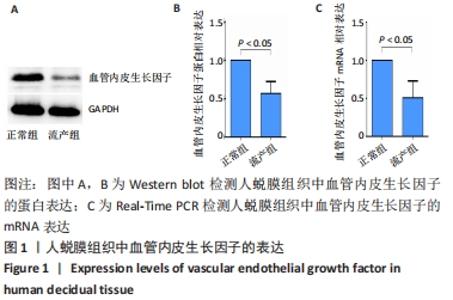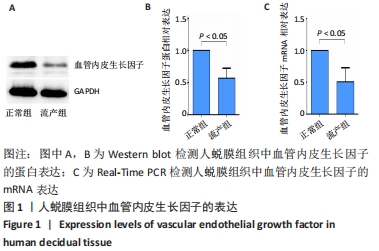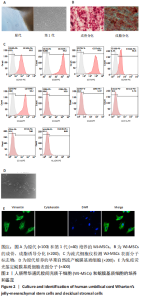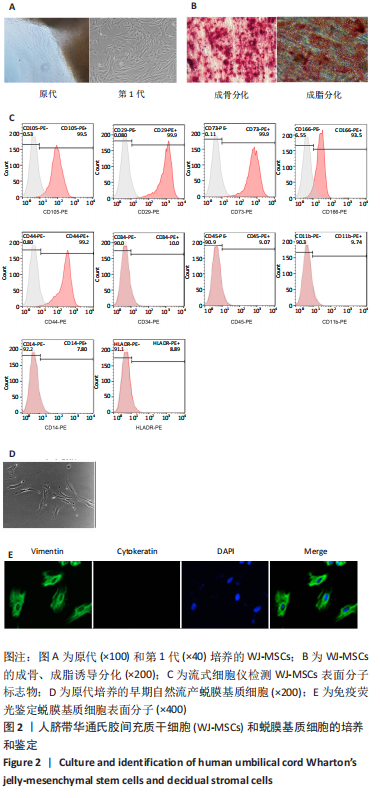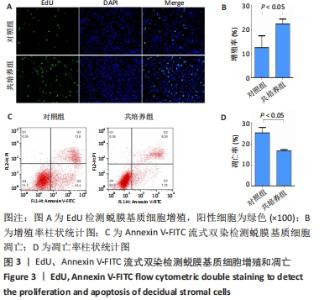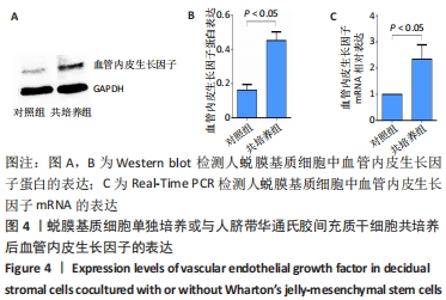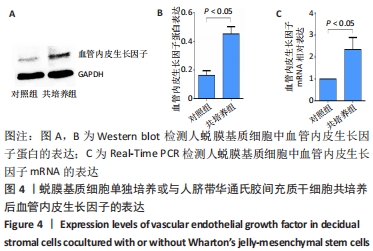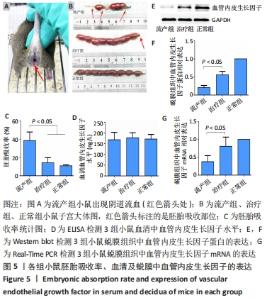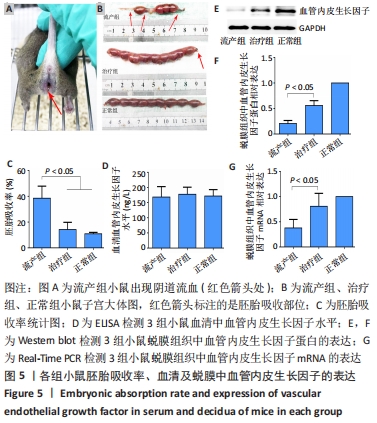[1] 自然流产诊治中国专家共识编写组.自然流产诊治中国专家共识(2020年版)[J].中国实用妇科与产科杂志,2020,36(11):1082-1090.
[2] FARREN J, MITCHELL-JONES N, VERBAKEL JY, et al. The psychological impact of early pregnancy loss. Hum Reprod Update. 2018;24(6):731-749.
[3] PINAR MH, GIBBINS K, HE M, et al. Early Pregnancy Losses: Review of Nomenclature, Histopathology, and Possible Etiologies. Fetal Pediatr Pathol. 2018;37(3):191-209.
[4] RIZOV M, ANDREEVA P, DIMOVA I. Molecular regulation and role of angiogenesis in reproduction. Taiwan J Obstet Gynecol. 2017;56(2):127-132.
[5] PLAISIER M, DENNERT I, ROST E, et al. Decidual vascularization and the expression of angiogenic growth factors and proteases in first trimester spontaneous abortions. Hum Reprod. 2009;24(1):185-197.
[6] LEE CL, VIJAYAN M, WANG X, et al. Glycodelin-A stimulates the conversion of human peripheral blood CD16-CD56bright NK cell to a decidual NK cell-like phenotype. Hum Reprod. 2019;34(4):689-701.
[7] DOUGLAS NC, TANG H, GOMEZ R, et al. Vascular endothelial growth factor receptor 2 (VEGFR-2) functions to promote uterine decidual angiogenesis during early pregnancy in the mouse. Endocrinology. 2009;150(8):3845-3854.
[8] HE X, CHEN Q. Reduced expressions of connexin 43 and VEGF in the first-trimester tissues from women with recurrent pregnancy loss. Reprod Biol Endocrinol. 2016; 14(1):46.
[9] GUPTA P, DEO S, JAISWAR SP, et al. Case Control Study to Compare Serum Vascular Endothelial Growth Factor (VEGF) Level in Women with Recurrent Pregnancy Loss (RPL) Compared to Women with Term Pregnancy. J Obstet Gynaecol India. 2019;69(Suppl 2):95-102.
[10] FANG Y, FENG X, XUE N, et al. STAT3 signaling pathway is involved in the pathogenesis of miscarriage. Placenta. 2020;101:30-38.
[11] KIANERSI F, GHANBARI H, NADERI BENI Z, et al. Intravitreal vascular endothelial growth factor (VEGF) inhibitor injection in patient during pregnancy. J Drug Assess. 2021;10(1):7-9.
[12] JALALI MS, SAKI G, FARBOOD Y, et al. Therapeutic effects of Wharton’s jelly-derived Mesenchymal Stromal Cells on behaviors, EEG changes and NGF-1 in rat model of the Parkinson’s disease. J Chem Neuroanat. 2021;113:101921.
[13] BORYS-WÓJCIK S, BRĄZERT M, JANKOWSKI M, et al. Human Wharton’s jelly mesenchymal stem cells: properties, isolation and clinical applications. J Biol Regul Homeost Agents. 2019;33(1):119-123.
[14] CHANDRAVANSHI B, BHONDE RR. Shielding Engineered Islets With Mesenchymal Stem Cells Enhance Survival Under Hypoxia. J Cell Biochem. 2017;118(9):2672-2683.
[15] THOMI G, SURBEK D, HAESLER V, et al. Exosomes derived from umbilical cord mesenchymal stem cells reduce microglia-mediated neuroinflammation in perinatal brain injury. Stem Cell Res Ther. 2019;10(1):105.
[16] KONALA VBR, BHONDE R, PAL R. Secretome studies of mesenchymal stromal cells (MSCs) isolated from three tissue sources reveal subtle differences in potency. In Vitro Cell Dev Biol Anim. 2020;56(9):689-700.
[17] CHAKRABORTY I, DAS SK, DEY SK. Differential expression of vascular endothelial growth factor and its receptor mRNAs in the mouse uterus around the time of implantation. J Endocrinol. 1995;147(2):339-352.
[18] KASHIWAGI A, DIGIROLAMO CM, KANDA Y, et al. The postimplantation embryo differentially regulates endometrial gene expression and decidualization. Endocrinology. 2007;148(9):4173-4184.
[19] CÖL-MADENDAG I, MADENDAG Y, ALTINKAYA SÖ, et al. The role of VEGF and its receptors in the etiology of early pregnancy loss. Gynecol Endocrinol. 2014; 30(2):153-156.
[20] CHEN X, JIANG L, WANG CC, et al. Hypoxia inducible factor and microvessels in peri-implantation endometrium of women with recurrent miscarriage. Fertil Steril. 2016;105(6):1496-1502.e4.
[21] 陈波,施秋秋,梁凯伦,等.孕康口服液调节复发性流产小鼠内分泌系统及VEGF信号通路降低流产率的作用和机制[J].中国中药杂志,2018,43(9): 1894-1900.
[22] KANKI K, II M, TERAI Y, et al. Bone Marrow-Derived Endothelial Progenitor Cells Reduce Recurrent Miscarriage in Gestation. Cell Transplant. 2016;25(12):2187-2197.
[23] WANG S, GUO S, HOU X. MicroRNA-24 inhibits CDX1 expression in decidual tissues of recurrent spontaneous abortion mice to reduce the abortion risk. Adv Clin Exp Med. 2020;29(8):929-936.
[24] SANO T, TERAI Y, DAIMON A, et al. Recombinant human soluble thrombomodulin as an anticoagulation therapy improves recurrent miscarriage and fetal growth restriction due to placental insufficiency - The leading cause of preeclampsia. Placenta. 2018;65:1-6.
[25] SCARPELLINI F, KLINGER FG, ROSSI G, et al. Immunohistochemical Study on the Expression of G-CSF, G-CSFR, VEGF, VEGFR-1, Foxp3 in First Trimester Trophoblast of Recurrent Pregnancy Loss in Pregnancies Treated with G-CSF and Controls. Int J Mol Sci. 2019;21(1):285.
[26] LIAU LL, RUSZYMAH BHI, NG MH, et al. Characteristics and clinical applications of Wharton’s jelly-derived mesenchymal stromal cells. Curr Res Transl Med. 2020; 68(1):5-16.
|
